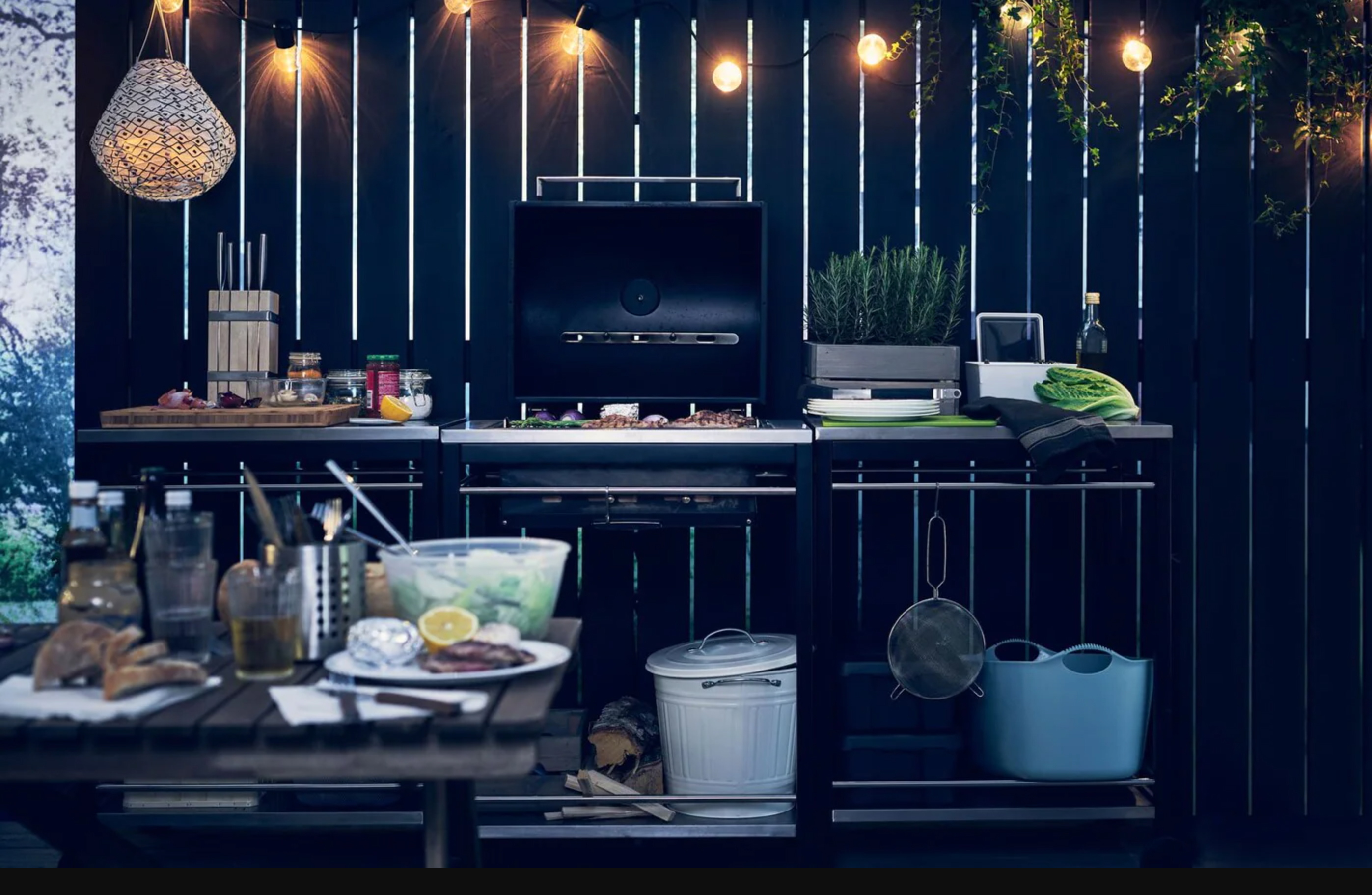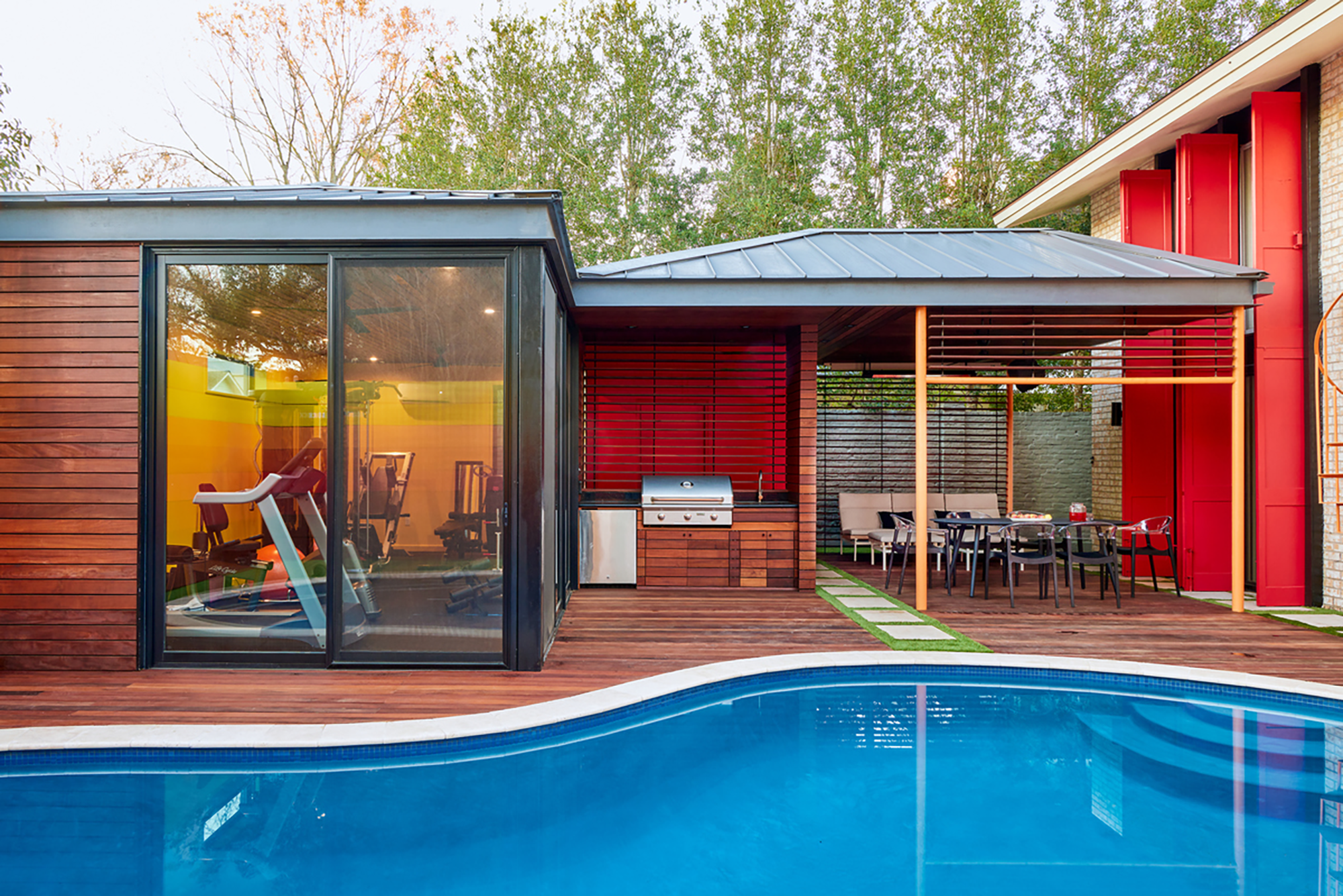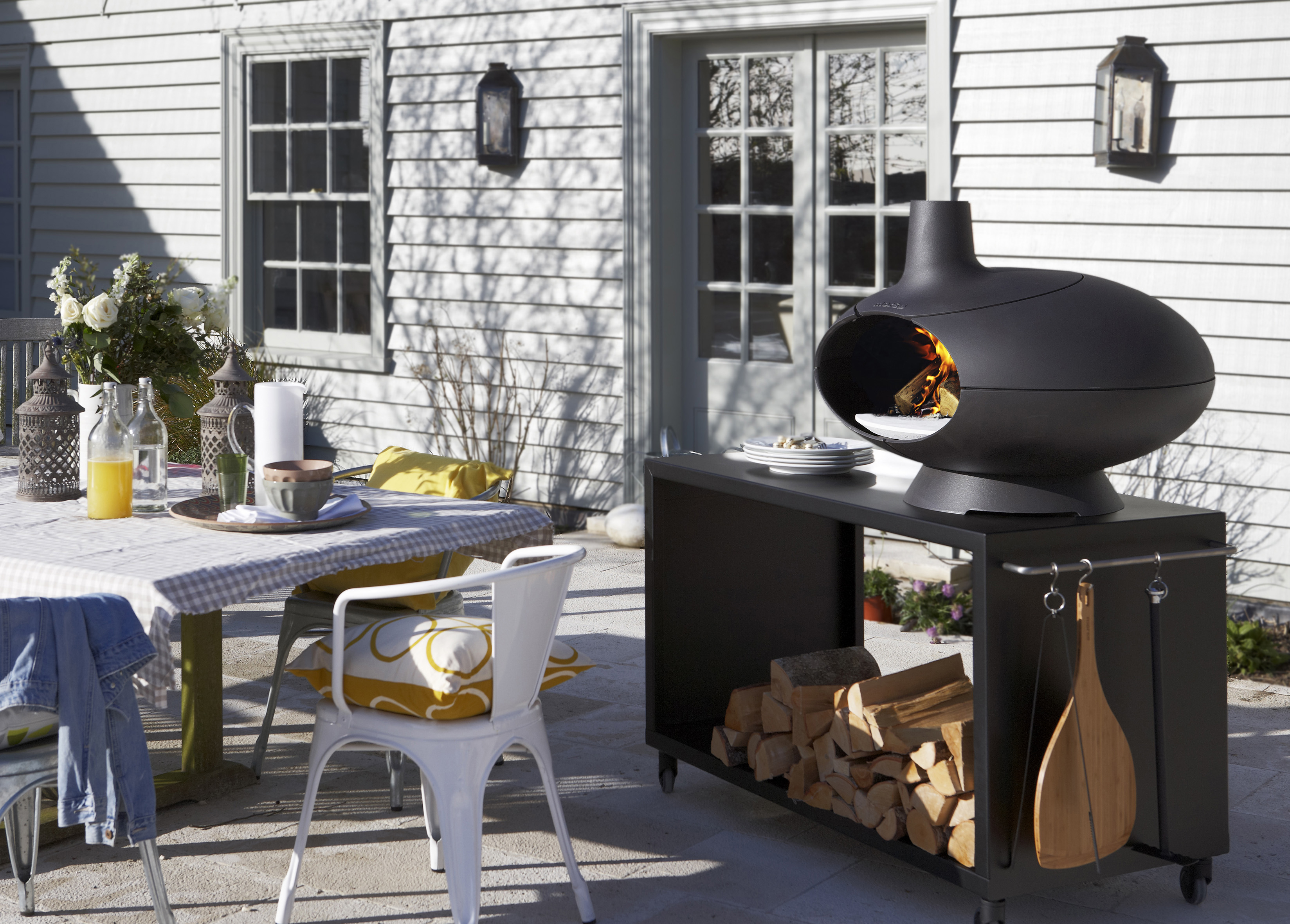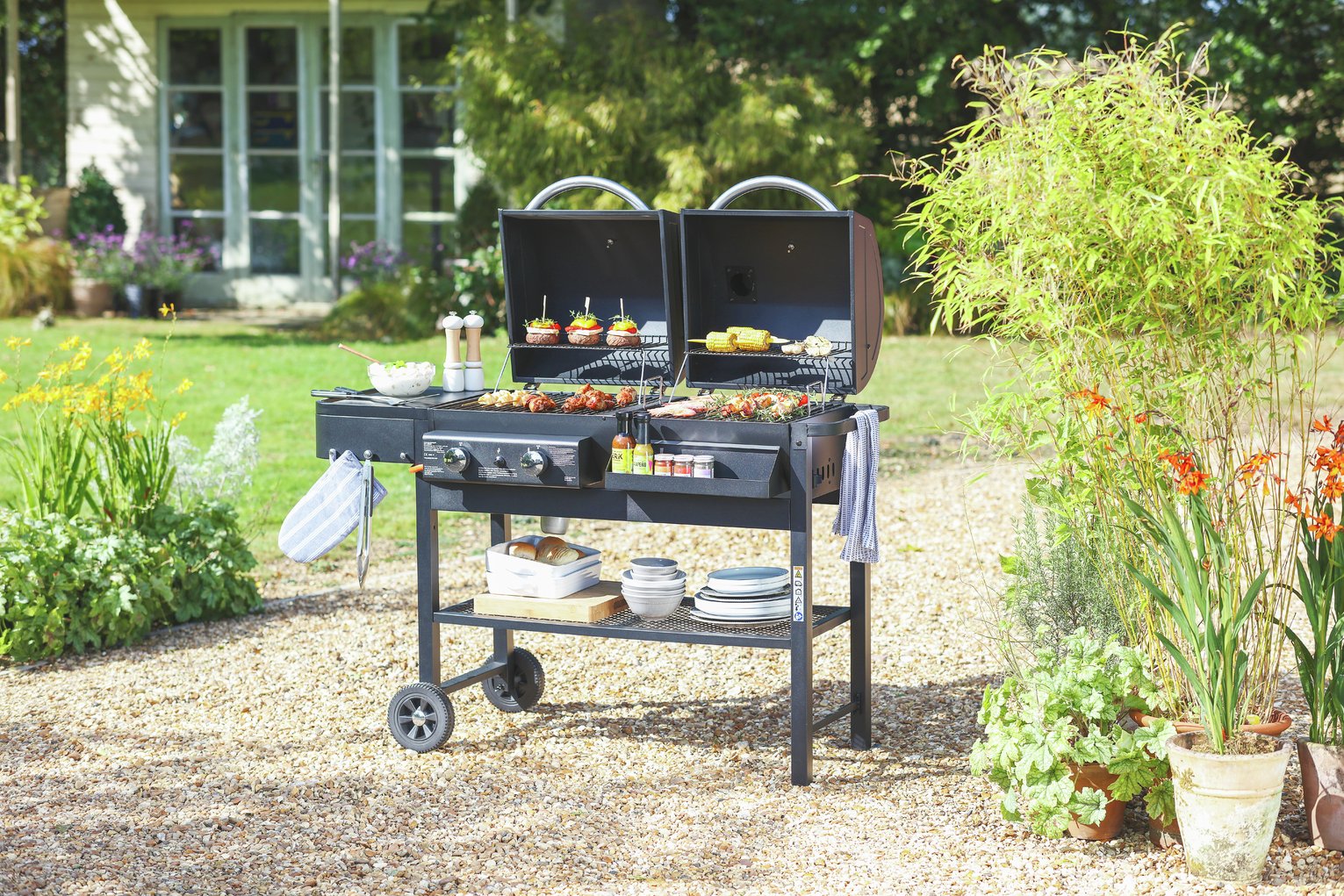How to clean a grill – 5 ways the experts use to make barbecuing easier
Knowing how to clean a grill is the key to a great tasting barbecue. And these expert hacks will have you flipping burgers in no time


The Livingetc newsletters are your inside source for what’s shaping interiors now - and what’s next. Discover trend forecasts, smart style ideas, and curated shopping inspiration that brings design to life. Subscribe today and stay ahead of the curve.
You are now subscribed
Your newsletter sign-up was successful
It's a scorching hot day, the beers have been flowing all afternoon, and your barbecue has been a success. There's nothing better than a grilled feast on a summer's day. As the neighbors begin to make their way home and the kids retreat indoors, you realise you're faced with the one job everyone wants to avoid: cleaning the grill.
Grilling is great. Cleaning is not. But we're here to make your life that little bit easier, and there are a few hacks for how to clean a grill that change everything. Whether you have one of the best gas grills or are using a firepit, we've asked some grilling experts the hassle-free way to clean your grill. So you spend less time scrubbing at blackened grates and more time enjoying delicious food.
How to clean a grill - the easy guide to barbecues

1. Use a grill brush
Let's make things clear - you'll never have a clean grill if you're only equipped with a regular dish cloth and scourer. A grill brush is a must. The bristles work wonders at scrubbing that charred residue away, leaving you with a smooth, clean grill for your next meal.
Be sure to invest in a decent brush, however. The bristles can easily fall out of cheap wire brushes leaving a risk of ingestion later. Grillart's Grill Brush and Scraper from Amazon is extra strong and has three times more bristles than a regular brush, meaning you need to do less work. And for a slightly more budget option, the PePeng BBQ Grill Cleaning Brush (also from Amazon) has three branches to it, and is sturdy enough to be a lot more efficient than a brush which just has one.
Give your barbecue a wipe down with a damp tea towel once you're finished brushing to ensure no bristles are left on the grill.
'I'm a big fan of the brush from Grill Rescue,' says Shawn Hill, founder of The Grilling Dad. 'I could go on and on about their grill brush, but it's the safest out there. You heat your grill up, dip the grill brush head into water, and then clean it with steam - plus it uses entirely natural materials. Not only is it safe, it's the most effective way I've found to clean your grill.'
A great alternative to a grill brush is a wooden barbecue scraper. 'Some people prefer these as they will adapt to your grill grate pattern over time,' explains Michael Haas of Angry BBQ.
The Livingetc newsletters are your inside source for what’s shaping interiors now - and what’s next. Discover trend forecasts, smart style ideas, and curated shopping inspiration that brings design to life. Subscribe today and stay ahead of the curve.
'If you've got a lot of build-up on the sides of your grill, you can use a scraper to get all of that loose and on to your grease tray or ash pan. Good nitrile gloves will help protect your hands from all the grease inside your grill,' he adds.
2. Scrub with Baking Soda

Baking soda is a wonder product. Not only does it help to clean our oven and taps, but it can work on outdoor kitchens too, making our grills sparkle, too. It's brilliant at dissolving organic substances, making it ideal for tackling barbecue grease.
It's a great alternative to harsher chemicals too. As Michael points out, 'Don't use any harmful chemicals that could cause problems for your food. That goes for cleaning the grill grates or any interior surfaces of the grill.'
Before you take your brush to it, sprinkle a generous amount of baking soda over a damp grill and leave it for 10 minutes to work its magic. Then, dip your brush in some warm water give the grate a good scrub. The baking soda will bubble up to help breakdown that burnt food, revealing a grill as good as new beneath. Just remember to give it a good rinse.
You can add some vinegar to the mix if stubborn stains still remain as the key ingredient, acetic acid, will help to degrade the dirt and food debris. When combined with the baking soda, the mixture will lather up to make a tough cleaning aid.
3. Use Barkeeper's Friend
'I could go on about how much I love Barkeeper's Friend for hours,' says Livingetc's editor Pip Rich. 'It's an inexpensive product I use on all my Le Creuset, greasy pans, taps and, yes, barbecue grills.'
Barkeeper's Friend is safe for use on stainless steel, ceramics, porcelain, copper, brass and fiberglass. 'All you need do is shake it on, then rub with a damp cloth. I've been amazed at how well my pans and barbecues have been cleaned. They look like new,' Pip says.
Buy some Barkeeper's Friend from Amazon.
4. Use lemon and salt
True, this may sound like a cocktail recipe, but it's actually a combination of the lemon's acidity and the salt's abrasiveness that manages to cut through grease on a barbecue grill.
The hitch is that the grill needs to be warm - not ideal for if you want to relax after cooking. Cut the lemons into halves and dip them into salt - rock salt or sea salt is best as the crystals are sharper. Rub and squeeze the lemon all over the hot grill - the grease will be gone and you'll just need soapy water to remove the salty lemon juice.
5. For stubborn char, leave to soak

'If you've left your grill grates dirty for a long time, you can remove them and soak them in hot water with a bit of dish soap,' says Michael. Giving your grates a good soak will make it lots easier to remove any of that tricky black stuff afterwards. There's no need to overthink this one: simply fill a tray (or wash basin, if yours is big enough) with boiling hot water and a generous amount of dish soap.
Leave for as long as necessary - usually at least an hour - and then scrub. What hasn't peeled off on it's own accord should easily be removed with a brush.
If you're soaking your grates, certain metals will have to be seasoned before you use them to cook again using oil and heat. ' If you have cast-iron grill grates and use soap, make sure you season them properly afterwards or they could become rusty or food will stick,' explains Michael. 'If the exterior of your grill has any stainless steel, don't be afraid to use a little stainless steel cleaner to make it look as good as possible.'
How often should I clean my grill?
We're all guilty of it. After spending the day eating (and drinking) in the sun, the last thing you feel compelled to do at the end of the evening is clean your grill. You clear the dishes, close the lid, and promise to return to your beloved barbecue in the morning. But alas, the next time you go to use your grill, it's still covered in char.
Ideally, you should clean your grill after each use. The best time to do so is straight after you finish eating, while the grates are still warm. As Shawn explains, this way, the carbonized grease hasn't had time to harden. 'You just spent time cooking up some great food, so go ahead and eat,' Shawn says. 'But the best time to clean it is while it's still warm and the food hasn't had a chance to cake on to your grates.'
'You want to monitor any grease build-up over time to make sure you don't deal with flare-ups,' adds Michael. 'If you've got a pellet grill, you want to make sure you clean out ash every 1-3 uses, depending on the length of the cook. With charcoal grills, it's a similar situation. Ash build-up can affect air flow, so dump the ash whenever it starts to build up.'
While cleaning the grill and clearing ash should both be regular tasks, this doesn't necessarily mean a top to bottom deep cleaning of your entire grill. Shawn suggests only doing that on an as-needed basis.

Lilith Hudson is a freelance writer and regular contributor to Livingetc. She holds an MA in Magazine Journalism from City, University of London, and has written for various titles including Homes & Gardens, House Beautiful, Advnture, the Saturday Times Magazine, Evening Standard, DJ Mag, Metro, and The Simple Things Magazine.
Prior to going freelance, Lilith was the News and Trends Editor at Livingetc. It was a role that helped her develop a keen eye for spotting all the latest micro-trends, interior hacks, and viral decor must-haves you need in your home. With a constant ear to the ground on the design scene, she's ahead of the curve when it comes to the latest color that's sweeping interiors or the hot new style to decorate our homes.